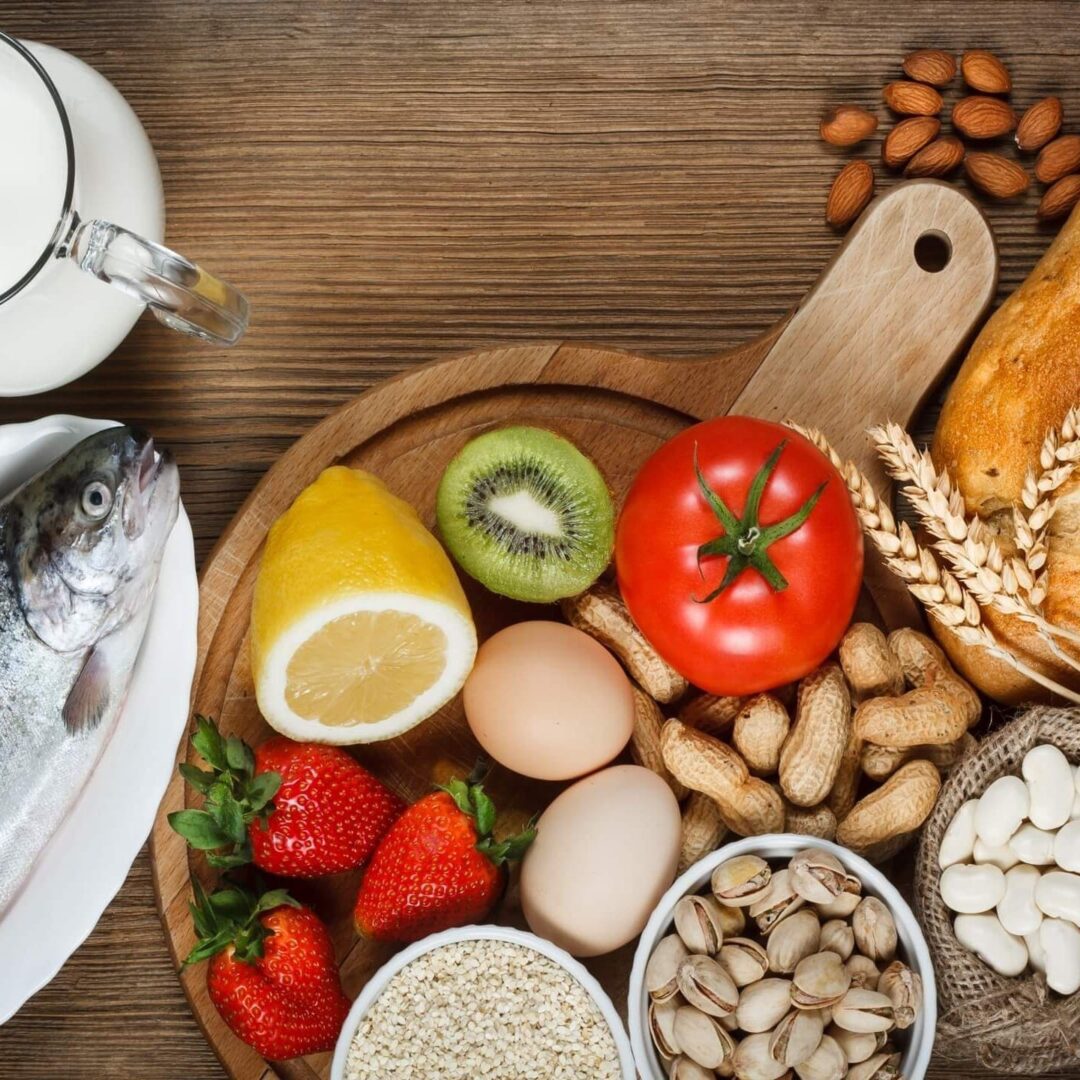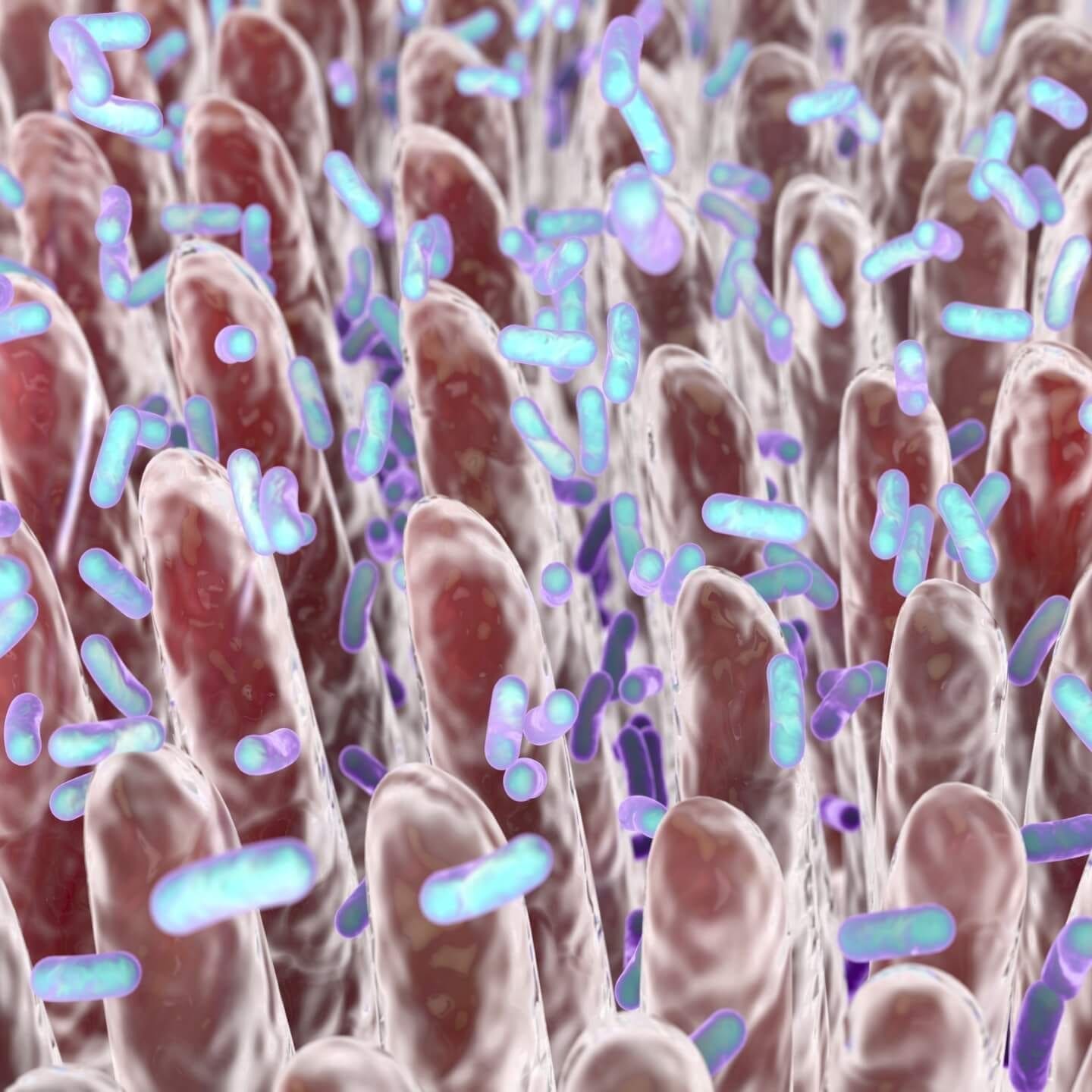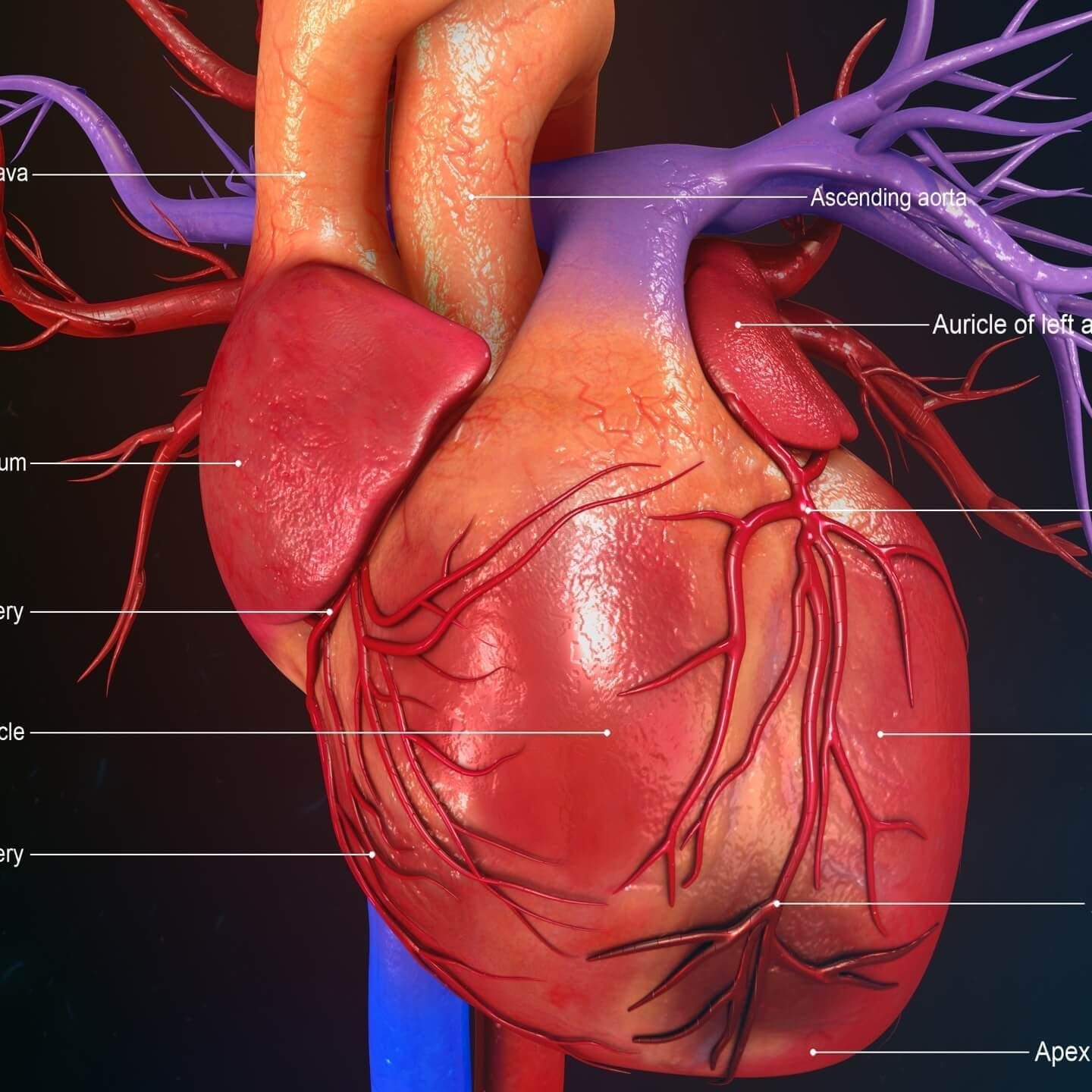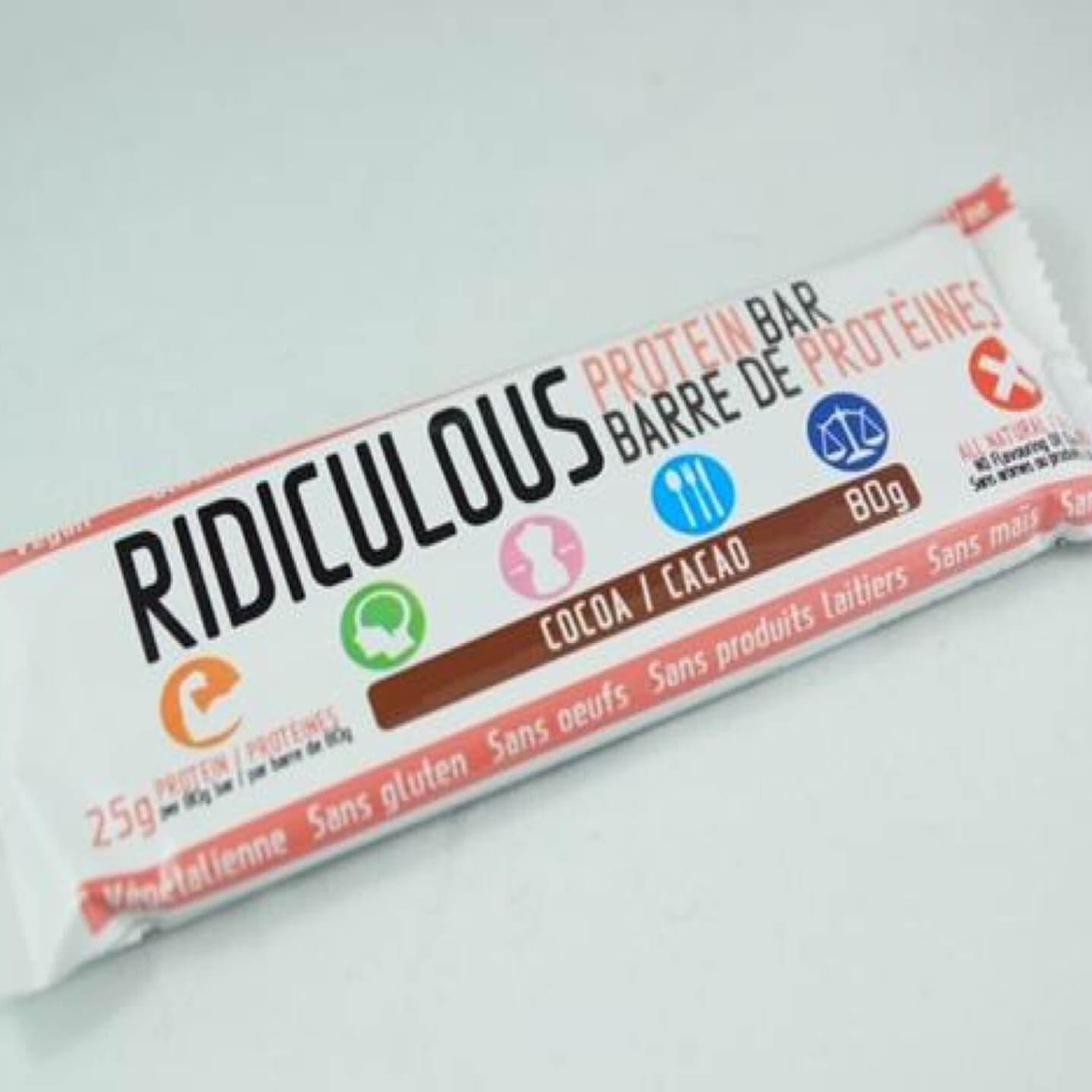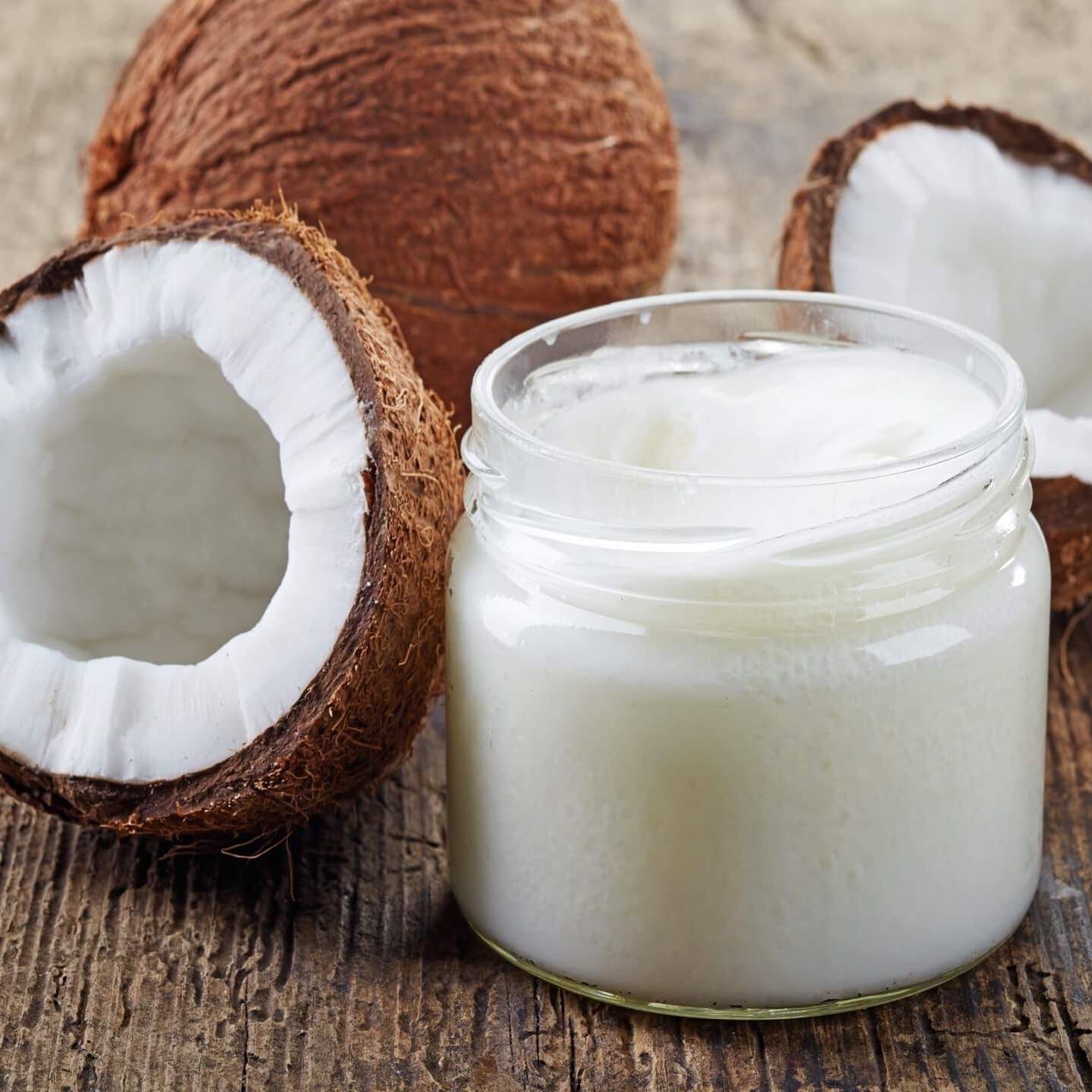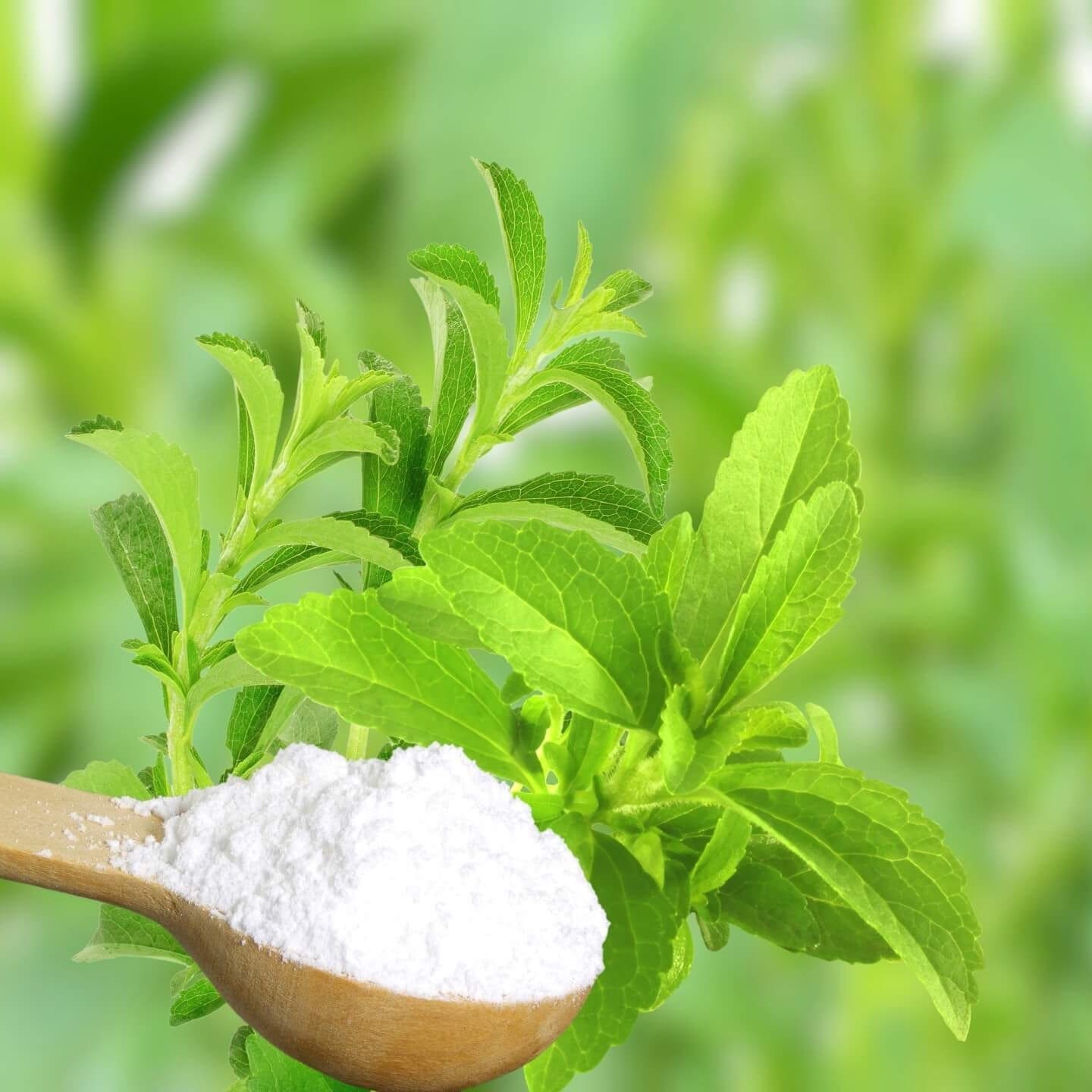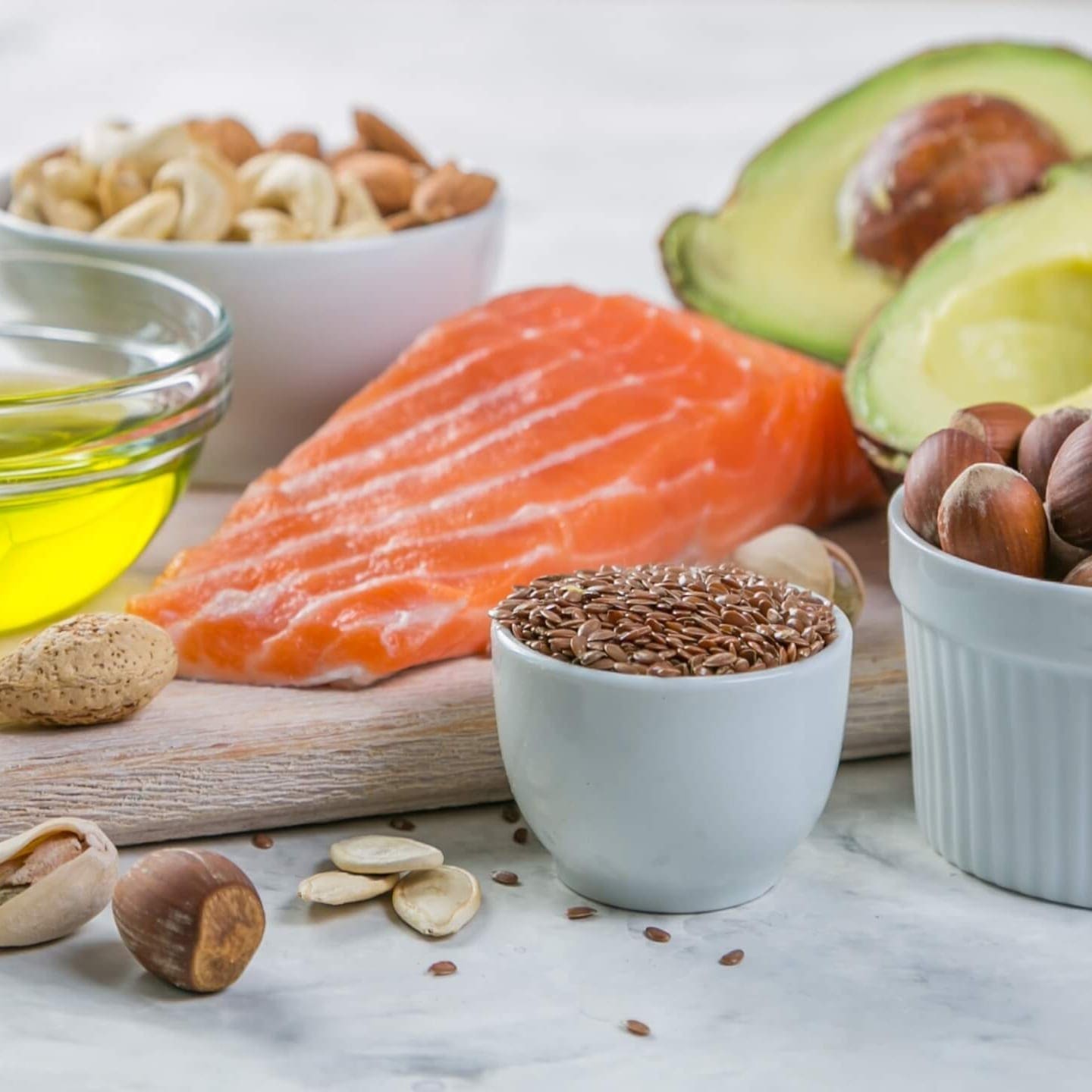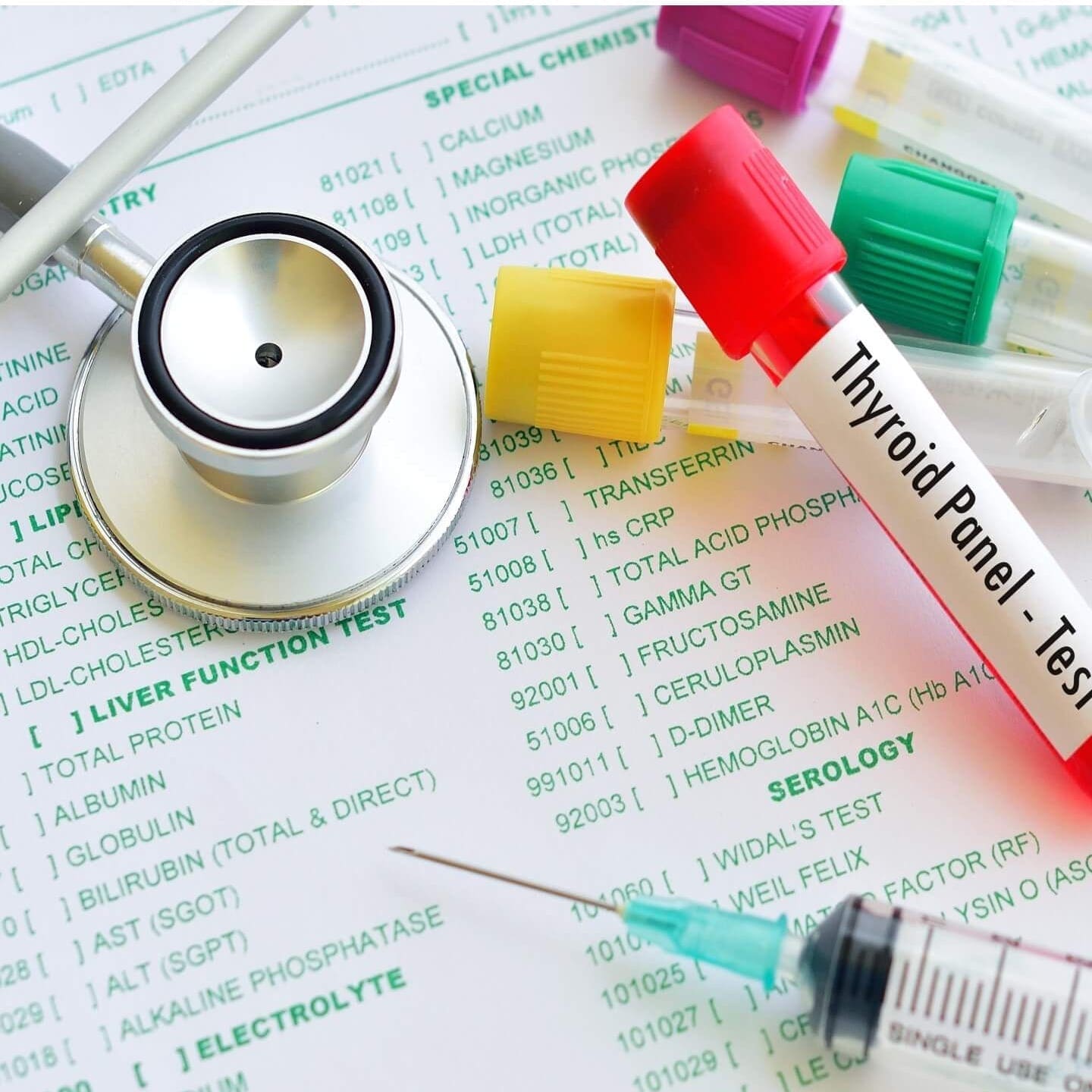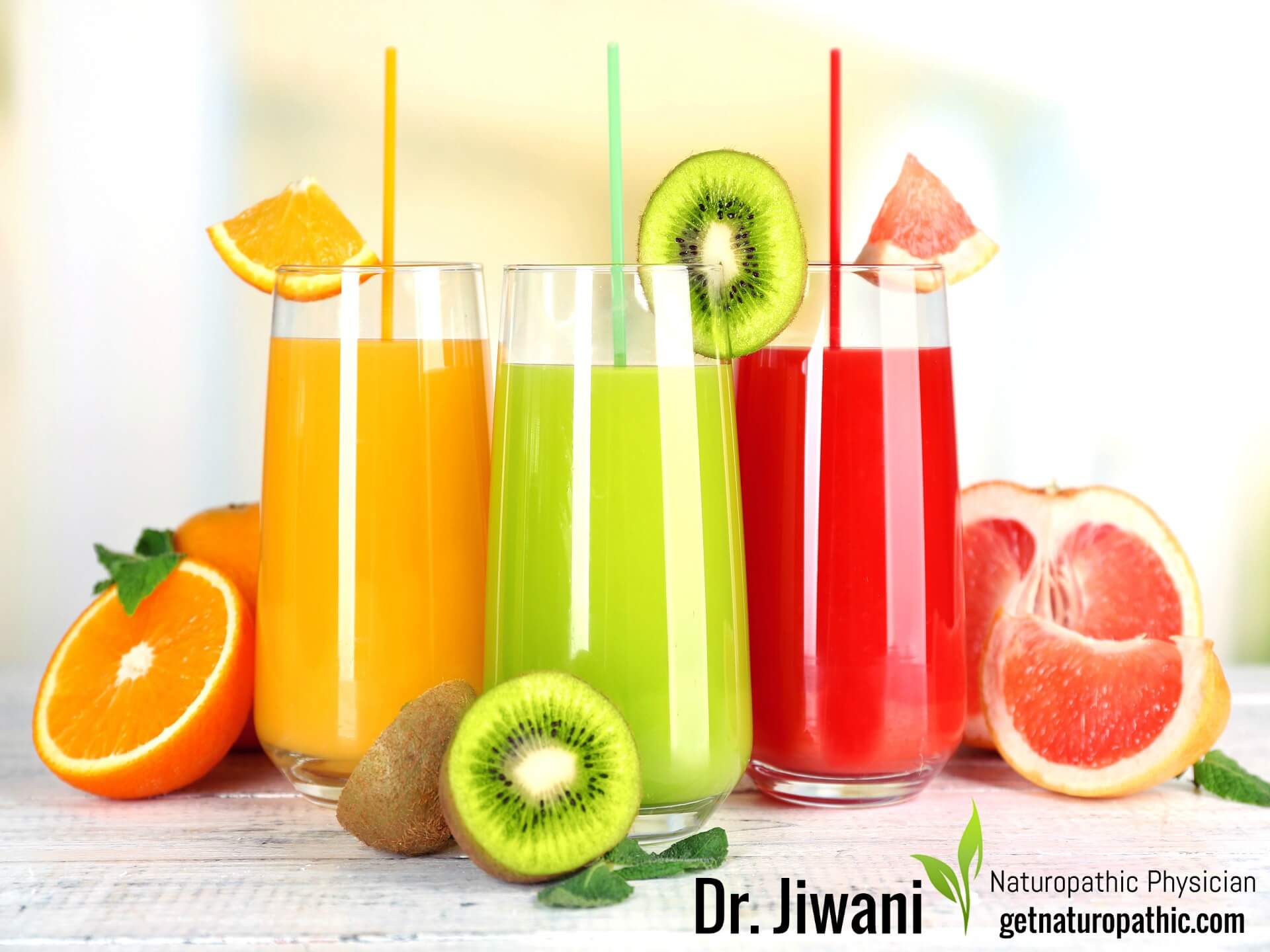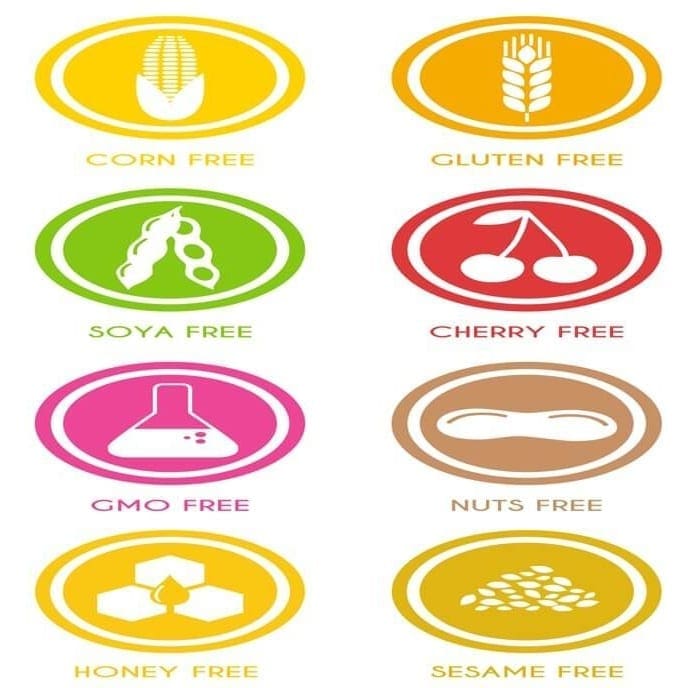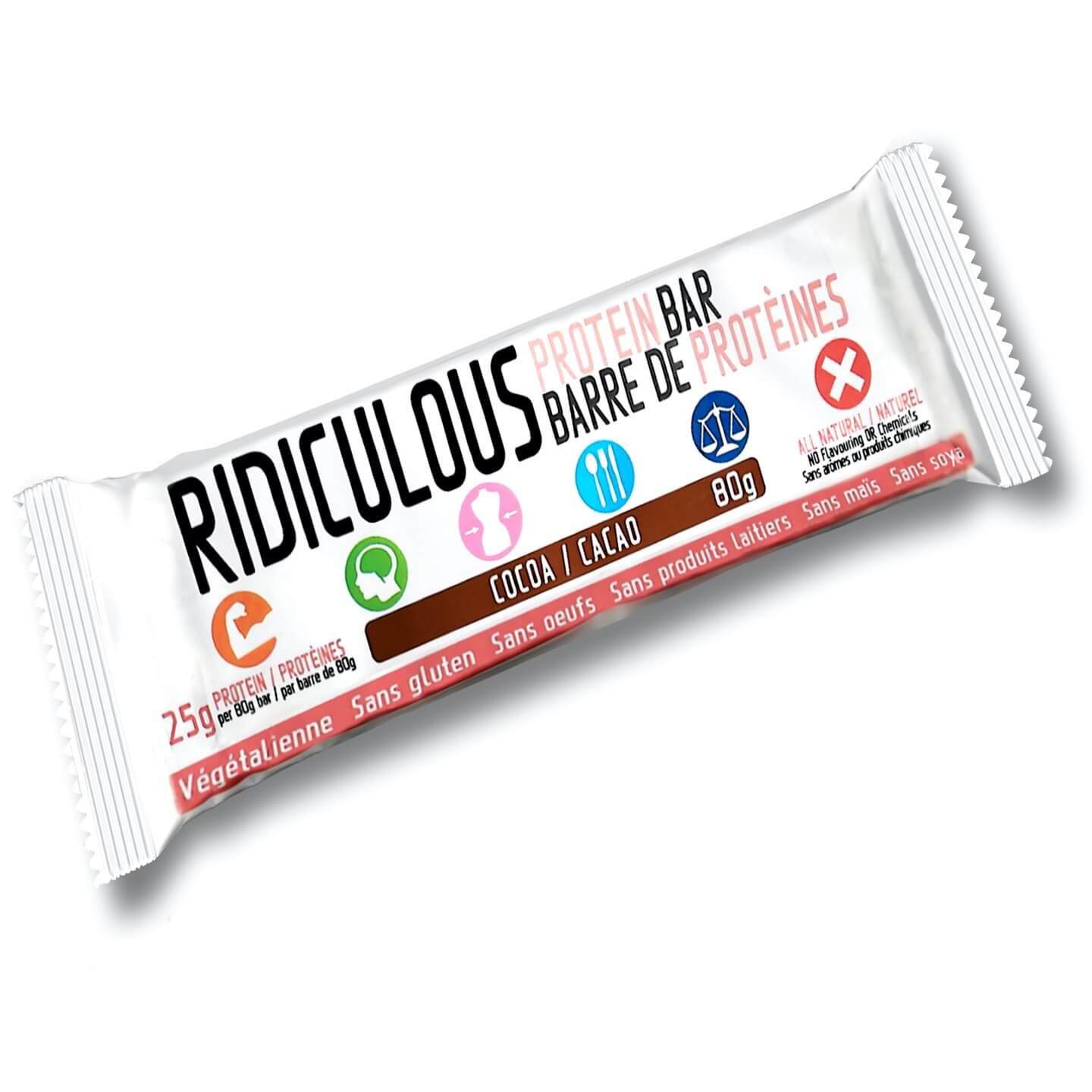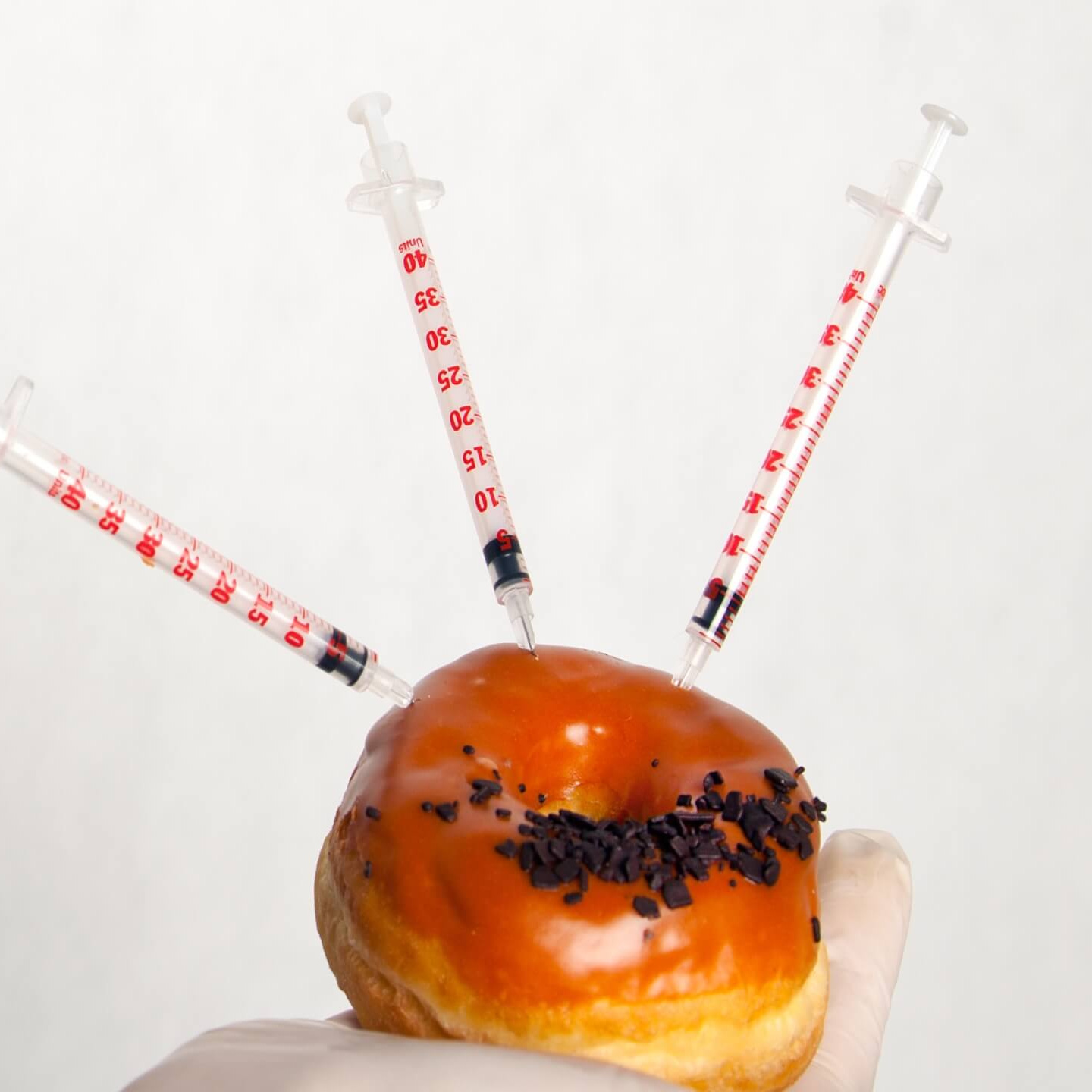Home »
Popular Posts
Fruit Juice: A Health & Weight Threat, Potentially More Damaging Than Soda!
Naturopathic Nuggets about Fruit Juice
- Fruit juice contains much more fruit than your body would ever consume at once, due to the missing pulp fibre
- Fruit juice often contains more sugar & calories than soda; facts reveal both beverages are dangerous for your health
- “Fruit nectar, fruit drinks, fruit beverages & fruit cocktails” are code for corn syrup, water & flavouring.
- Even “healthier” juices claiming complete purity & “not from concentrate” may contain unlisted additives & re-added flavour
- Fructose, whether from fruit, fruit juice or corn syrup in processed foods, may rapidly lead to belly fat, weight gain, abdominal & visceral fat, diabetes type II, fatty liver, high cholesterol & metabolic syndrome
- Children are also susceptible to the effects of fructose, leading to ADHD, obesity & type II diabetes.
- You can measure your uric acid levels to check for fructose toxicity with a simple blood test done by your doctor
- For the optimal benefit of fruit, eat it, don’t drink it. Ultimately, water is nature’s best beverage for health.
More Fruit Doesn’t Mean More Juice
Fruit juice has the reputation for being healthy, and definitely a better choice than soda. A 2012 analysis revealed the world was consuming 12 million tonnes of citrus fruit juice alone per year, likely in their quest for health. A study in 2015 found higher income countries consume more fruit juice, with women 20-39 years of age consuming the most. This may be due to national recommendations for more servings of fruits & vegetables. Many health benefits are associated with fruits & vegetables, including lower risk of heart & cancer deaths (BMJ 2014). We will review the many health & weight concerns of fruit juice and its sugar, fructose.
Fruit Juice Requires Lots Of Fruit
Fruit is consumed slower than fruit juice, as it requires chewing, and the fibre within slows the sugar digestion & absorption. The liver metabolizes this small amount of fruit sugar easily. Comparatively, it takes at least three apples to make one cup of apple juice. It’s difficult to consume three apples at one time, as the fibre provides a feeling of fullness, creating satiety. Fruit consumption allows for self-regulation.
A Wolf In Sheep’s Clothing
In comparison, fruit juice is full of sugar, missing the natural fibre, with minimal nutrients. Shockingly, fruit juice is actually more detrimental than soda, like a wolf in sheep’s clothing. We perceive fruit juice to be nourishing & healthy as it’s derived from fruit. Yet, the comparison of soda & apple juice shows that 1 cup contains similar amounts at 40 grams of sugar and 160 calories.
Misleading Manufacturing
Fruit juice labelled as “100% Pure” or “Not from Concentrate” may still be subject to unlisted additives, due to manufacturing processes that remove flavour. Flavour is then re-added as “natural flavours” or ethyl butyrate, which may contain allergens or sugars. At best you may be buying re-flavoured juice, with the worst being coloured, sugar water free of nutritional value.
Fruit Juice Is Making You Fat
The large and rapid intake of sugar from fruit juice is quickly absorbed without the fiber. This fruit sugar, fructose, can only be processed by the liver. Any excess fructose that the liver can’t metabolize is stored as abdominal & visceral fat. Additionally, excess fructose may also lead to Fatty Liver (Journal of Hepatology 2008), Insulin Resistance, Abnormal Cholesterol (Nutrition & Metabolism 2005) and Metabolic Syndrome (Faeh 2005). The potentially dangerous effect of fructose can occur in as little as ten weeks (Stanhope et al., Journal of Clinical Investigation 2009).
Juice Or Junk: Two Sides Of The Same Coin
It is important to remember that your body cannot differentiate whether fructose comes from fruit or high fructose corn syrup (HFCS) such as soda, juice, breads, sweetened yogurt, canned fruit, candy, junk foods & salad dressings. HFCS is mostly used in food manufacturing due to its low cost. Research shows that whole fruit reduces risk of Diabetes Type II, whereas fruit juice increases risk dramatically (BMJ 2013).
Detrimental Effects Of Fructose
There is a lot of research supporting the possibly dangerous health effects of fructose including:
- Attention Deficit Hyperactivity Disorder ADHD
- Belly Fat
- Diabetes Type II
- Fatty Liver
- High Blood Pressure
- Immune Dysfunction
- Kidney Issues
- Metabolic Syndrome
- Nutrient Deficiencies
- Weight Gain, Obesity
Liquid Sugar Equals Fat Gain
Drinking fruit juice is not the same as eating fruit. Whereas when you eat fruit, the act of chewing plus the fibre in the fruit signals your body to feel full (satiety), so you eat less. Unfortunately, liquid sugar calories do not have the same effect, so you end up consuming more food & calories overall. Weight gain may occur from an excess amount of calories, and/or consuming more carbohydrates than the body can use, which then is stored as fat.
Childhood Obesity Is Too Common
Furthermore, even children are susceptible to the effects of fructose, which explains increasing childhood obesity (Lancet 2001). Excess weight gain in children is such an epidemic that the American Journal of Public Health 2012 “promote the elimination of 100% fruit juice in favor of whole fruit for children”. Weight gain may be occurring as children are consuming much more than the recommended amount of sugar, which is 25 grams or less than 10% of daily calories (US FDA). Twenty-five grams of sugar is equivalent to one large piece of fruit, such as an apple, orange or bunch of grapes!
Fructose Toxicity Lab Test
Additionally, fructose metabolism creates uric acid as a byproduct. In fact, JAMA 2010 found that fructose-rich diets increase the risk of gout (high uric acid levels). Fructose not only increases uric acid levels, it also reduces excretion. This makes the measurement of uric acid levels a key marker in detecting fructose toxicity. Blood tests showing high uric acid levels indicate excess fructose in the diet, whether from fruit, juice, processed or junk food. Determining whether fructose toxicity is a concern may assist you in achieving a healthier program for life.
Eat Your Fruit, Don’t Drink It
In conclusion, it is ok to eat fruit in moderation. However, when it comes to fruit juice, I would strongly recommend complete avoidance. Remember, even “healthier” juices may create fructose toxicity. We consume enough carbs as it is, so why predispose your body to obesity, diabetes, belly fat & heart disease from fruit juices, when whole fruit can reduce your risk for these conditions. Ultimately, eat your fruit, don’t drink it for a healthier, leaner, longer life.
Related Artificial Sweeteners: The Link To Weight Gain, Stroke & Dementia
References
Basciano H, Federico L, Adeli K. Fructose, insulin resistance, and metabolic dyslipidemia. Nutrition & Metabolism. 2005 Feb 21;2(1):5.
Choi HK, Willett W, Curhan G. Fructose-rich beverages and risk of gout in women. JAMA. 2010 Nov 24;304(20):2270-8.
Faeh D, Minehira K, Schwarz JM, Periasamy R, Park S, Tappy L. Effect of fructose overfeeding and fish oil administration on hepatic de novo lipogenesis and insulin sensitivity in healthy men. Diabetes. 2005 Jul 1;54(7):1907-13.
Faostat. Faostat.fao.org. Retrieved 2015-12-27.
Gill, Jason MR et al. Fruit juice: just another sugary drink? The Lancet Diabetes & Endocrinology. 2014 Feb 10:2(6):444-46.
Ludwig DS, Peterson KE, Gortmaker SL. Relation between consumption of sugar-sweetened drinks and childhood obesity: a prospective, observational analysis. The Lancet. 2001 Feb 17;357(9255):505-8.
Muraki I, Imamura F, Manson JE, Hu FB, Willett WC, van Dam RM, Sun Q. Fruit consumption and risk of type 2 diabetes: results from three prospective longitudinal cohort studies. BMJ. 2013 Aug 29;347:f5001.
Ouyang X, Cirillo P, Sautin Y, McCall S, Bruchette JL, Diehl AM, Johnson RJ, Abdelmalek MF. Fructose consumption as a risk factor for non-alcoholic fatty liver disease. Journal of Hepatology. 2008 Jun 30;48(6):993-9.
Singh GM, Micha R, Khatibzadeh S, Shi P, Lim S, Andrews KG, Engell RE, Ezzati M, Mozaffarian D, Global Burden of Diseases Nutrition and Chronic Diseases Expert Group (NutriCoDE. Global, regional, and national consumption of sugar-sweetened beverages, fruit juices, and milk: a systematic assessment of beverage intake in 187 countries. PLOS One. 2015 Aug 5;10(8):e0124845.
Stanhope KL, Schwarz JM, Keim NL, Griffen SC, Bremer AA, Graham JL, Hatcher B, Cox CL, Dyachenko A, Zhang W, McGahan JP. Consuming fructose-sweetened, not glucose-sweetened, beverages increases visceral adiposity and lipids and decreases insulin sensitivity in overweight/obese humans. The Journal Of Clinical Investigation. 2009 May 1;119(5):1322-34.
Wang X, Ouyang Y, Liu J, Zhu M, Zhao G, Bao W, Hu FB. Fruit and vegetable consumption and mortality from all causes, cardiovascular disease, and cancer: systematic review and dose-response meta-analysis of prospective cohort studies. BMJ. 2014 Jul 29;349:g4490.
Wojcicki JM, Heyman MB. Reducing childhood obesity by eliminating 100% fruit juice. American Journal Of Public Health. 2012 Sep;102(9):1630-3.
This information is for educational purposes only and does not advocate self-diagnosis. Due to individual variability, consultation with a licensed health professional, such as a licensed naturopathic physician is highly recommended, prior to starting a natural treatment plan. For further information, see Terms of our Website.
Follow Dr. Jiwani
Popular Posts


